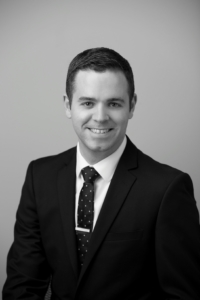 Clifford is a Patent Attorney who has been working in the IP profession since September 2014. From September 2014 until May 2016 Clifford was working on the patent prosecution side of patent law. In May 2016, Clifford moved to his current position at Erise IP, focusing on IP litigation. The following is his Q & A interview.
Clifford is a Patent Attorney who has been working in the IP profession since September 2014. From September 2014 until May 2016 Clifford was working on the patent prosecution side of patent law. In May 2016, Clifford moved to his current position at Erise IP, focusing on IP litigation. The following is his Q & A interview.
How did you get into a career in IP law?
I went to college to study engineering because I was great at math and science in high school. Toward the end of my sophomore year, I realized that an engineering career was not for me. Both of my parents were lawyers, so I decided to take an introduction to law class just to learn more about their professions and ended up really enjoying it. Pretty shortly thereafter I decided on law school. At first, because I knew I did not want to be an engineer, I kept my options open and was not committed to IP law from the start. But pretty quickly I learned that IP law let me get the best of both worlds.
While I did not want a career in engineering, I still enjoyed learning about science and engineering. IP law gave me the chance to think and act like a lawyer, but in subject matter areas I still really enjoyed it. On top of that, having the engineering background not only gave me a leg up when competing for jobs, but it also gave me the foundation I needed to make the day to day learning of complex subject matter much simpler.
What are the top 3 things you really like about working in IP law?
Getting to learn about different technologies across many different fields; getting to work on not just hard IP (e.g., patents), but also getting to work on cases involving soft IP (e.g., copyright, trademark, trade secret); getting to focus on, and become a specialist in, a very particular field of law.
What is one thing you dislike (or that may stress you out) about the work?
While the exposure to different technologies across different fields is one of the pluses of the field, sometimes a case will involve a complex technology I’ve had no exposure to. This can be stressful at the start, but ultimately it’s gratifying to put in the work, learn the subject matter, and ultimately get to the point where you can explain the complicated technology to the Court or laypeople.
Do you feel like there are advancement opportunities?
Absolutely. While my experience is somewhat limited having only worked in smaller, boutique-style firms, advancement opportunities have always been available to me.
Do you have any tips for people who are looking for their first job in the field?
While it can be appealing to just apply for and take the highest paying job opportunities out there, I would also encourage you to really try to learn about a firm or company’s culture and whether you’ll be a good fit there. While money is important, you will be spending a lot of time with your coworkers. For me, it was important that I really enjoyed the people I worked with and that I fit in with the culture. Doing that has definitely had a positive benefit on my mental health and helped me avoid attorney burnout.
